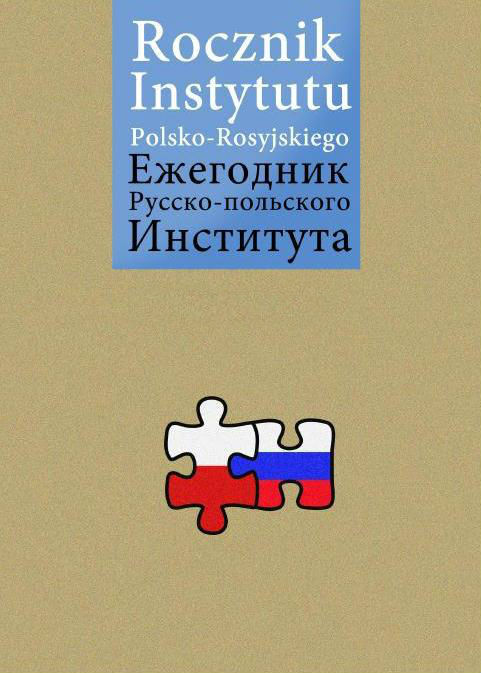«Родина», «Россия», «российский» в вербальных ассоциациях носителей русского языка
„Motherland”, „Russia”, „Russian” in the verbal associations of Russians
Author(s): Evgenia StarostinaSubject(s): Language and Literature Studies
Published by: Instytut Polsko-Rosyjski
Keywords: verbal associations; associative experiment; associative dictionary
Summary/Abstract: The paper presents a comparative analysis of the associative fields ‘Motherland’, ‘Russia’ and ‘Russian’. The research is based on the results of associative experiments and associative dictionaries (the Russian Associative Dictionary, the Slavic Associative Dictionary and the Russian Associative Dictionary of Schoolchildren). The methodological basis of the research includes frame analysis method as well as the correlation method used on the main associates (i.e. reactions with a frequency greater than 5%) of given associative fields. The research has shown that the frame structures of these associative fields are similar to each other, what means that the concepts ‘Motherland’, ‘Russia’ and ‘Russian’ are interrelated in minds of modern speakers of Russian. Besides, frame slots with the highest frequencies are the same in all three associative fields – these are ‘The Symbols of Russia/Motherland’, ‘Semantic Correlations’ and ‘Emotions and Evaluations’. The fact that these slots show greater frequencies than the other slots means that speakers of Russian have rather abstract than concrete concepts of Motherland, Russia and Russian (which though evoke emotions and feelings). The difference between responses in these slots show that the concept of Motherland is more concrete compared to the concept of Russia.
Journal: Rocznik Instytutu Polsko-Rosyjskiego
- Issue Year: 2014
- Issue No: 1 (6)
- Page Range: 42-51
- Page Count: 10
- Language: Russian

